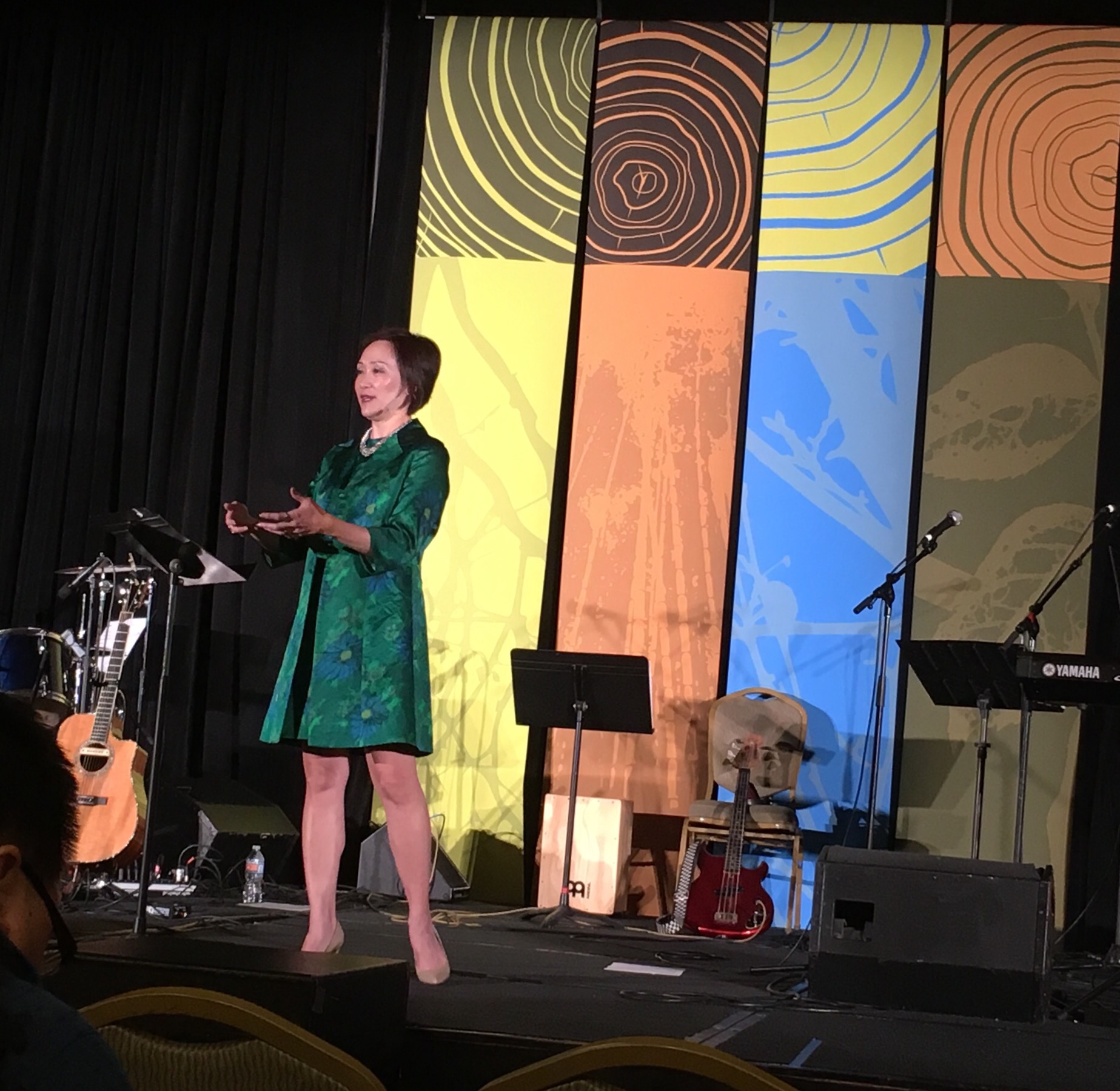I knew what I was going to wear before I knew all what I would actually say from the stage. I knew I was going to wear the green dress.
A few weeks ago I asked you, my dear readers, via my FB page to pray and send good, healing thoughts as I lay in bed with a fever and a stomach bug the night before/morning of a speaking engagement. I had thought about posting an update but there was so much swirling in my heart and head. I wanted to breathe a bit, sit down, and then write about that gig.
The speaking opportunity was a first for me – to speak in front of 250-ish colleagues of mine at our triennial Asian American Ministries staff conference. I’ve been with InterVarsity Christian Fellowship for almost 20 years, many of those were part-time on paper years as my husband and I made choices about childcare and careers. My career trajectory has been a slow and steady one, though based on recent years on social media it might look like I’ve “suddenly appeared” to receive invitations to speak and write. Well, I was here long before the internet. Seriously. I was a newspaper reporter before I was a blogger so writing has always been a part of who I am and what I do, long before blogging, FB, and Twitter. I am THAT old. Which is why this chance to speak in front of my colleagues was special. It was a first.
My talk was on extending our influence as Asian American women and men, beyond the student leaders we develop, beyond the campuses or spaces we work within. And as I spent time preparing and praying for that talk I kept coming back to what my presence would communicate as much as, and in conjunction with, my words. What would my physical body communicate and how does that connect with what my words would be?
If you are a woman of color, you may already have a sense of where I was going with this. There are so few positive images of us in the world, even fewer in certain spaces within the evangelical world I sit within. We are often the token, the one or two people of color featured alongside a slate of white speakers. One or two of us is usually enough, which can make it feel like a competition. I’m just being real. It can get hard to cheer one another on when it feels like there are so few opportunities for people of color, fewer for women of color.
So I kept thinking about what it meant to be the one asked to speak on extending our influence, and I kept thinking about my parents and the expectations, hopes, and dreams of success and stability they had/have for their now adult daughters. I thought about how it’s easy for me to slam their hopes for stability and The American Dream as a defense mechanism for adopting the privileges while condemning their motives. I thought about how it is easy for me and my generation to talk about the impact of white supremacy and the empire and assimilation to distance ourselves from the privilege we live in and embody.
And I thought of my mother’s green dress. She had the dress made from fabric she received as a wedding gift. She had different pieces made in anticipation of moving to America, party clothes for the life of milk and honey promised in America. The green dress and matching jacket sat in a silver trunk in my mom’s closet for years untouched. I never saw her wear it, and there are no photos of her wearing the party dress. America, it turns out, isn’t a party.
I took the green dress and have worn it over the years to the parties my parents’ sacrifices and “selling out” to the American Dream afforded me. I’ve worn it to friends’ weddings and to my swearing-in as a citizen of the United States.
I knew I was going to wear the green dress before I knew all of the words I would speak that night. I knew the story of the dress and my wearing the dress would do what words alone could not. Extending my influence never started with me. It started with the dreams and hopes my parents and ancestors carried and passed on, imperfectly but with love, to me. I knew wearing the dress meant expressing my femininity in a way that was completely authentic to who I am as an immigrant Korean woman. I knew wearing the dress would allow me to embody past generations, an opportunity to allow my mother’s story to extend beyond my memories. I knew wearing the dress gave me an opportunity to remind the men in the audience even invitations to speak are still designed for men because where in the world does a woman wearing a dress hide the mic pack?
Words are important, sisters, but so are the ways we embody those words.
